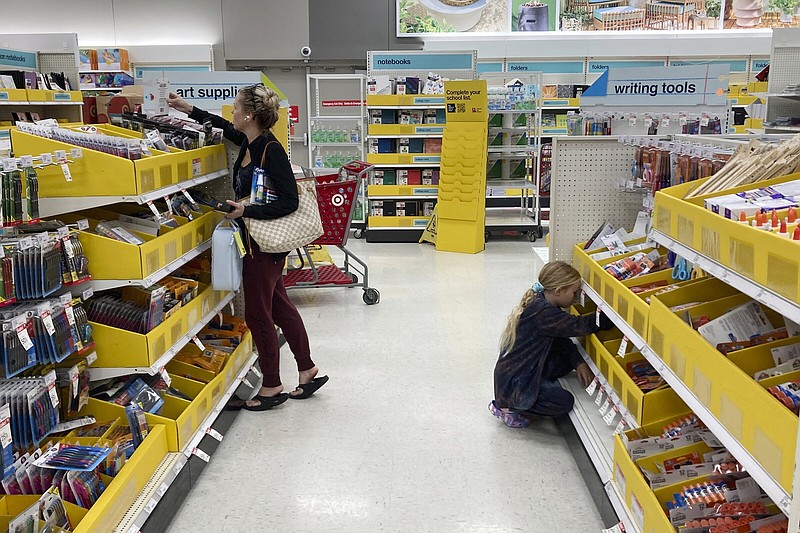Target's second-quarter profit plunged nearly 90% on the year, the Minneapolis-based retailer having recently slashed its prices to clear unwanted inventories of clothing, home goods and electronics.
The retailer on Wednesday reported second-quarter net income of $183 million, or 39 cents per share, for the three month period ended July 30.
That's far short of the per-share profit of 79 cents that Wall Street had expected, according to a survey by FactSet, and the $1.82 billion in net income the company posted last year during the same period.
Overall, revenue for Target rose 3.5% to $26.04 billion. Analysts were expecting $26.03 billion, according to FactSet. Online sales rose 9%, following growth of 9.9% last year.
In the first quarter, Target's profits had tumbled 52% compared with the year-ago period.
Target warned in early June that it was canceling orders from suppliers and aggressively cutting prices because of a pronounced spending shift to necessities by Americans as the pandemic eased and consumer budgets tightened amid inflation.
Target executives told reporters during a media call Wednesday that if Target weren't aggressive about marking down inventory, it would have taken at least several quarters to get rid of the unwanted merchandise.
"While these inventory actions put significant pressure on our near-term profitability, we're confident this was the right long-term decision in support of our guests, our team and our business," CEO Brian Cornell said.
The company is planning cautiously for the remainder of the year, Cornell said, including the critical holiday season. That will put a greater focus on stocking groceries and things like cosmetics.
Target said it's carefully "listening to the wants, needs, hopes and concerns," of customers, said Christina Hennington, Target's chief growth officer and executive vice president.
"They still have spending power, but they're increasingly feeling the impact of inflation, and while the recent reduction in prices at the gas pump have been encouraging, guest confidence in their personal finances continues to wane," Hennington said on a company conference call Wednesday.
As a result of inflation, customers are looking more at Target's less expensive private label brands, waiting for discounts and consolidating trips to save on gas, the company said.
Target's results came a day after Walmart and Home Depot posted earnings that showed average transaction amounts increasing while overall transactions fell, meaning, broadly, that customers spent more on fewer purchases.
Walmart's relatively upbeat results led to a large rally in the stocks of retailers, including Target, on Tuesday.
Lowe's, the home-improvement retailer, and TJX, the owner of the discount retail chains T.J. Maxx and Marshalls, also reported earnings Wednesday.
Lowe's showed comparable sales declining slightly but operating income increasing slightly. The company said that sales growth came from professional shoppers like contractors, a group that makes up a smaller share of its typical consumers compared with Home Depot.
TJX reported a 5% fall in comparable sales in the latest quarter. Still, Ernie Herrman, TJX's CEO, said in a statement that he sees a "marketplace flush with off-price buying opportunities." Retailers like T.J. Maxx often buy the excess merchandise from other store chains.
Information for this article was contributed by Anne D'Innocenzio of The Associated Press, Jordyn Holman of The New York Times and Brendan Case of Bloomberg News.
